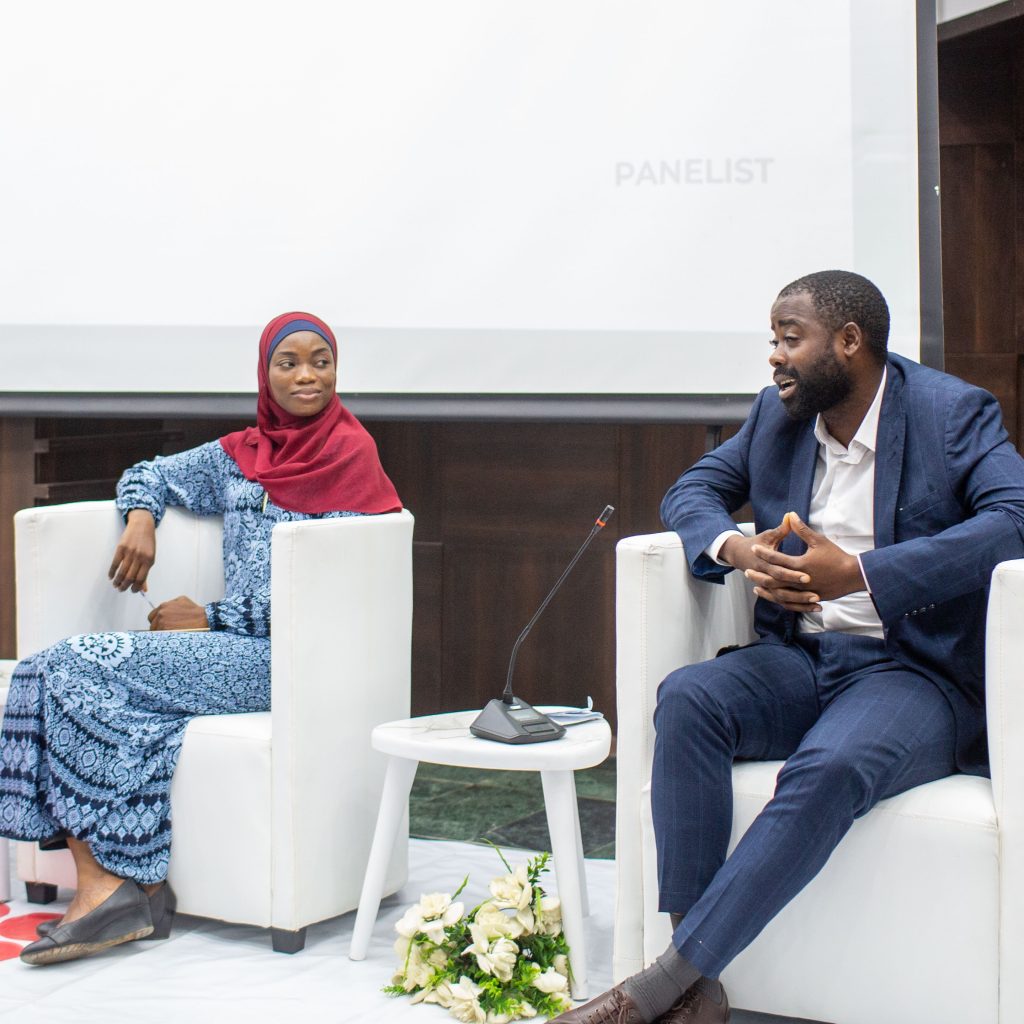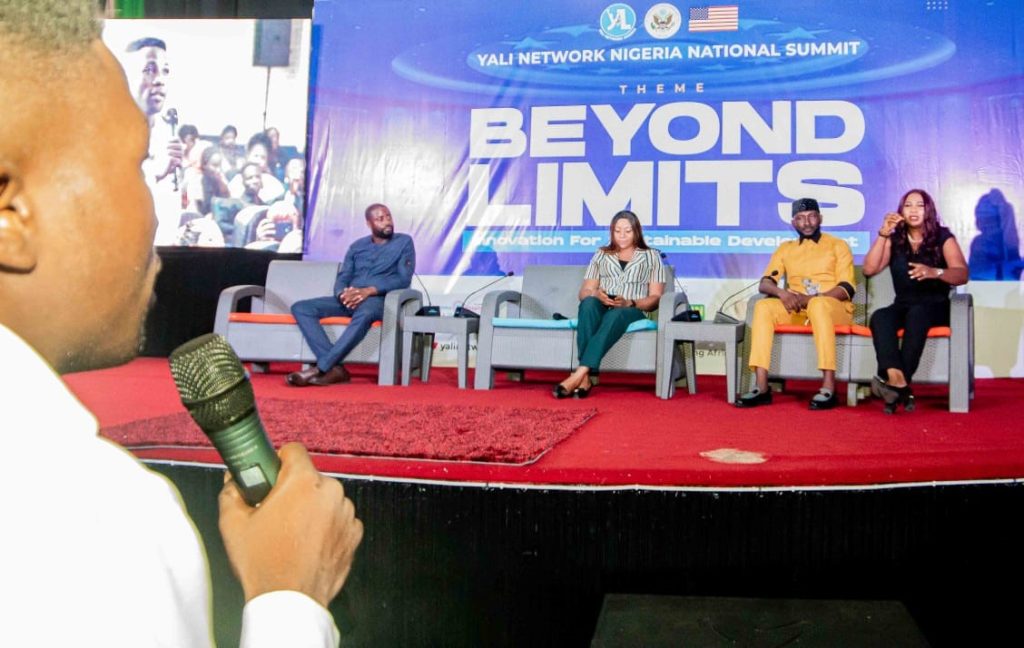Sustainable and Inclusive Business: Insights from NABC’s Nigeria Lead at the UN International Youth Day
At the recent UN International Youth Day Event, Mr. Kabir Ademoh, the Country Office Lead at the Netherlands-African Business Council (NABC) Nigeria, shared insights during panel discussions focusing on the future of green jobs, youth-led businesses, and sustainability.
In an era where sustainability and inclusivity have become more than just buzzwords, businesses are increasingly recognising the need to incorporate these principles into their operations. Recently, Mr. Kabir Ademoh, the Country Office Lead at the Netherlands-African Business Council (NABC) Nigeria, shared invaluable insights during panel discussions focusing on the future of green jobs, youth-led businesses, and sustainability. These discussions shed light on how businesses can thrive in the green economy, harness young talent, and contribute to Africa’s sustainable development.
The Importance of Green Jobs for Youth
In Nigeria, the importance of green jobs for youth cannot be overstated. With a youthful demographic comprising a significant portion of the population, harnessing the potential of young professionals in environmentally conscious sectors is essential for sustainable development. Green jobs offer a promising path to address both youth unemployment and promote an environmentally conscious future. These jobs encompass various sectors, including renewable energy, sustainable agriculture, environmental management, and green technology. By equipping young Nigerians with the necessary skills and knowledge to excel in green industries, the country can effectively combat unemployment, mitigate environmental challenges, and pave the way for a sustainable and prosperous future for its youth and the nation as a whole.
In honour of the United Nations International Youth Day, Mr. Kabir Ademoh played a pivotal role by participating in a panel discussion held in Abuja, Nigeria, on August 15th. The discussion revolved around the theme of “Green Jobs for the Future.” During this engaging session, Mr. Ademoh emphasised the paramount importance of young professionals acquiring the skills required to excel in the green economy. As the world embraces sustainability, young talents equipped with green skills are poised to lead the way towards a more environmentally conscious future.
NABC's Commitment to Capacity Building
During his address, Kabir explained how the NABC, with the expertise of its members and partners, has been at the forefront of building competencies and capacities among young Nigerians. This has been achieved through a series of comprehensive training programmes, with a particular focus on the field of horticulture. These programmes equip young professionals with the knowledge and expertise required to excel in sustainable agriculture and contribute to green initiatives. Not to mention, commitment to skill development aligns with the broader goal of creating green jobs, which is crucial for sustainable economic growth (SDG 8: Decent Work and Economic Growth) and combating climate change (SDG 13: Climate Action).
In addition to nurturing young talent, Mr. Ademoh highlighted the crucial contribution that the Dutch private sector can make to Nigeria’s ambitious goal of boosting its energy capacity to 30GW by 2030, with 30% of this capacity derived from renewable sources. This transition not only aligns with global sustainability objectives but also opens up substantial economic prospects. Partnerships and collaborations between Dutch and Nigerian enterprises can facilitate the exchange of renewable energy technologies, investments, and expertise, thereby paving the path toward a sustainable energy future.

YALI Network Nigeria National Summit 2023: Overcoming Obstacles to Sustainability in Youth-Led Businesses
Building upon these insights, Kabir Ademoh contributed to a fruitful dialogue on how to overcome obstacles to sustainability in youth-led businesses during the Young Africa Leadership Initiative (YALI) Network Nigeria National Summit 2023 that took place on August 25th and 26th. It was remarked that, while the challenges within the social entrepreneurship ecosystem affect leaders of social enterprises of all ages, young entrepreneurs encounter distinct hurdles. This can be described as a “double bind” where their age amplifies these challenges.
To overcome the barriers to sustainability encountered by youth-led enterprises in Nigeria, a comprehensive approach is essential, tailored to the distinctive challenges encountered by young business owners. As highlighted in an OECD report titled ‘Unlocking the Potential of Youth-Led Social Enterprises,’ young entrepreneurs in the social sector face unique obstacles. They cope with issues such as a lack of visibility and understanding of social entrepreneurship, coupled with the absence of an established credit history, which complicates the process of securing financial support. Critical areas of concern encompass access to funding, assistance in business development, and the acquisition of essential knowledge and skills. Moreover, significant hurdles exist in terms of accessing markets, establishing supportive institutional structures, and gaining legal recognition, all of which present formidable challenges for emerging young entrepreneurs.

Ademoh concluded by reiterating the importance of aligning businesses with the United Nations Sustainable Development Goals (SDGs) as a means to future-proof operations. Such alignment is not merely a matter of corporate social responsibility but a strategic imperative for long-term success. Companies that integrate sustainability into their strategies are better positioned to attract customers, investors, and talent. Moreover, by investing in these principles, businesses can not only thrive but also play a pivotal role in shaping a brighter and more sustainable future.


